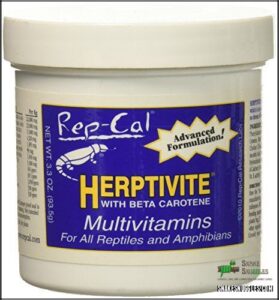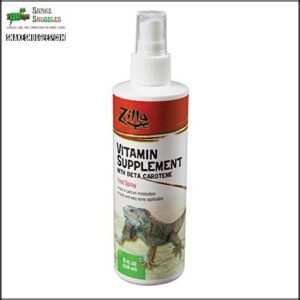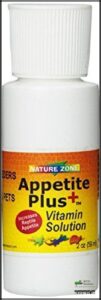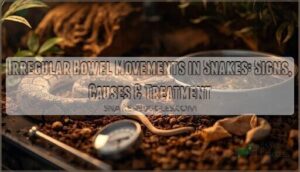This site is supported by our readers. We may earn a commission, at no cost to you, if you purchase through links.

Think of multivitamins and calcium powders as your backup plan when diet alone falls short. Soft bones, weak muscles, rough sheds—these pop up when key nutrients go missing. Stick with brands you trust, match the formula to what your snake actually eats, and remember: balance matters. Overdoing supplements causes problems just as fast as skipping them.
Ready to meet the top picks and discover what really keeps your serpent thriving? The proof is just ahead.
Table Of Contents
- Key Takeaways
- Importance of Snake Supplements
- Choosing The Right Supplements for Your Snake
- 3 Best Snake Supplements
- Providing a Balanced Diet for Your Snake
- How to Use Snake Supplements Safely
- Why Calcium Supplements Are Crucial for Snakes
- Identifying Health Issues in Snakes
- Supplementing Your Snake’s Diet Correctly
- Frequently Asked Questions (FAQs)
- Do snakes need vitamin and mineral supplements?
- Do snakes need vitamin C?
- Do snakes need calcium supplements?
- Do snakes need vitamin D?
- What are the best vitamins for snakes?
- Do snakes need any supplements?
- What supplements do ball pythons need?
- Why do snakes need vitamin D3?
- How often should I replace snake supplements?
- Are there natural alternatives to commercial snake supplements?
- Conclusion
Key Takeaways
- Captive snakes need calcium and vitamin D3 supplements because feeder prey lacks the bone-strengthening nutrients wild prey provides, and without UVB lighting or dietary variety, deficiencies like metabolic bone disease become inevitable. – Vitamin deficiencies cause severe problems—vitamin A deficiency affects up to 39% of captive reptiles with eye issues, thiamine deficiency from fish diets triggers neurological dysfunction in 90% of affected snakes, and vitamin E deficiency from frozen prey increases risk by 80%. – Choose supplements with preformed vitamin A (not beta carotene, which snakes can’t convert efficiently), pair calcium powder with vitamin D3 for proper absorption, and dust prey items weekly for adults or twice weekly for juveniles to prevent overdose. – Over-supplementation creates its own dangers—hypercalcemia causes kidney damage, vitamin A toxicity damages liver and skin, and nutrient imbalances disrupt metabolism, so weigh prey, track dosing schedules, and rotate products instead of layering multiple supplements.
Importance of Snake Supplements
Your snake needs the right vitamins and minerals to stay healthy, but figuring out what to actually supplement can be tricky.
Here’s why supplements matter and what each one does to keep your reptile thriving.
Why Snakes Need Vitamin Supplements
Why do captive snakes—fed whole prey that should theoretically contain everything they need—still end up with nutritional gaps that require supplementation? The answer lies in captive conditions.
Wild snakes consume prey with bones strengthened by natural sun exposure and varied diets, while captive feeders often lack adequate calcium and vitamin D3. Without UVB lighting or dietary variety, your snake can’t maintain proper calcium absorption or bone health, making targeted reptile vitamins essential for preventing deficiencies and supporting long-term reptile health.
Risks of Vitamin Deficiencies in Snakes
Vitamin deficiencies can wreck your snake’s health. A lack of key nutrients triggers serious problems that go way beyond what most keepers expect.
Here’s what happens when vitamins run short:
- Vitamin A deficiency causes squamous metaplasia—mucus membranes turn into useless skin tissue, creating severe eye and mouth issues. Studies show periocular edema affects up to 39% of reptiles in impacted populations.
- Vitamin E deficiency produces yellow fat disease (steatitis). Frozen fish diets increase deficiency risk by 80%, leading to liver necrosis and muscle weakness.
- Thiamine deficiency from fish-heavy diets creates rapid neurological dysfunction—head tilts, convulsions, even death—affecting 90% of snakes on thiaminase-rich prey.
- Biotin deficiency fractures scales and disrupts shedding, while vitamin C deficiency causes spontaneous skin splitting.
Whole prey alone won’t cut it. Vitamin D3 and calcium supplements are essential—they prevent deficiency symptoms that compromise bone strength and immune function. Up to 35% of captive snakes show clinical signs of vitamin toxicity or deficiency, which means proactive supplementation beats dealing with health crises later. Understanding reptile nutritional needs is vital for preventing these deficiencies and safeguarding your snake’s overall health.
Role of Vitamin D3 in Snake Health
Without enough D3 circulating through your snake’s system, calcium becomes nearly useless—no matter how much you’re dusting those prey items. D3 acts like a molecular gatekeeper, unlocking calcium absorption across your snake’s intestinal walls. Without UVB lighting or vitamin D3 supplements, captive snakes face bone deformities and neurological dysfunction—deficiency symptoms documented in species from corn snakes to pythons.
| D3 Source | Vitamin D3 Benefits | Best For |
|---|---|---|
| UVB Lighting | Natural synthesis; bolsters snake bone health | Diurnal species; colubrid care |
| Oral D3 Supplements | Direct calcium absorption boost | Nocturnal snakes; limited UVB access |
| Fortified Prey | Integrated reptile nutrition | All captive snakes on whole-prey diets |
| Injectable D3 | Clinical deficiency correction | Severe cases; veterinary use only |
Your snake’s skeletal integrity depends on adequate D3 for proper calcium metabolism—without it, metabolic bone disease becomes inevitable. Plasma concentrations in captive Eastern Indigo Snakes lacking UVB regularly fall below healthy thresholds, proving that reptile care demands intentional vitamin supplements. Combining UVB exposure with targeted supplementation gives you control over your snake’s long-term health outcomes.
Benefits of Calcium Supplements for Snakes
Calcium supplements don’t just build stronger bones—they prevent metabolic collapse, keep shedding cycles healthy, and support successful breeding. But here’s the catch: calcium needs vitamin D3 to actually work. Without D3, your snake’s body can’t absorb the calcium properly, and bone health starts breaking down.
Most feeder rodents create another problem. They naturally contain about twice as much phosphorus as calcium, throwing off the balance your snake needs. That’s where calcium powder steps in—it corrects that imbalance and keeps everything running smoothly.
The benefits stack up quickly:
- Stops metabolic bone disease before it starts
- Supports egg development in breeding females
- Improves shed quality by maintaining mineral levels
When you’re shopping for calcium powder, grab one with vitamin D3 already mixed in. It’s the safest, most effective option for keeping your snake healthy.
Choosing The Right Supplements for Your Snake
You can’t just walk into a store and grab any supplement bottle. Your snake needs specific nutrients based on its species—and that’s what should guide your choice.
So what actually matters when you’re staring at rows of bottles?
Let’s break down what matters most when you’re standing in front of those supplement bottles.
Vitamin a Vs. Beta Carotene for Snakes
Here’s the thing about vitamin A: snakes can’t turn beta carotene into the active form they need. Carnivorous reptiles lack the enzymes to convert carotenoids efficiently—studies show near-zero bioavailability. That’s why you need preformed vitamin A sources like retinol acetate in products such as Repashy Herptivite rather than relying on beta carotene conversion.
Snake health risks from deficiency include swollen eyes and infections, while vitamin toxicity occurs above 50,000 IU/kg. Smart reptile nutrition means choosing vitamin and mineral supplements with actual retinol, not just beta carotene—though reptile vitamin spray with carotenoids still offers antioxidant benefits your snake’s immune system will appreciate. Understanding reptile vitamin needs is vital for preventing deficiencies and securing overall health.
| Supplement Type | Vitamin A Form | Absorption in Snakes |
|---|---|---|
| Vitamin A Plus | Preformed retinol | Direct and efficient |
| Beta Carotene products | Carotenoids | Negligible conversion |
| Repashy Herptivite | Retinol palmitate | Highly bioavailable |
| Reptile Vitamin Spray | Mixed carotenoids | Antioxidant only |
Recommended Vitamin Supplements for Snakes
Regarding snake supplements, you’ll want products backed by actual herpetological research. Fluker’s Liquid Vitamin delivers vitamins A, C, D, and E at two drops per 50 grams of body weight—twice weekly for adults, up to four times for juveniles. Repashy Herptivite provides preformed vitamin A and vitamin D3 without risking vitamin toxicity, while Reptile Calcium powders (with or without D3) prevent calcium balance issues and metabolic bone disease. Reptile Vitamin Spray offers carotenoids for immune assistance, though it won’t replace true retinol. Always dust prey items rather than free-feeding supplements to guarantee proper snake nutrition and supplement safety for peak reptile health.
- Fluker’s Liquid Vitamin: Proven multivitamin formula for indoor snakes
- Repashy Herptivite: Trusted for preformed vitamin A and D3 delivery
- Reptile Calcium Powder: Essential for skeletal health and calcium balance
- Species-Specific Dosing: Tailor frequency to diet, age, and UVB exposure
Factors to Consider When Selecting Snake Vitamins
Not every snake needs the same supplement routine—your ball python’s requirements differ dramatically from those of a corn snake or kingsnake.
Factor in age, diet variety, and UVB exposure when selecting reptile calcium and vitamin D3 products. Check supplement quality—look for calcium powder with proper vitamin balance and avoid fillers.
Species needs dictate whether you’ll dust prey weekly or use reptile vitamin spray. Match dietary requirements to proven reptile nutrition science, not marketing hype.
3 Best Snake Supplements
After weighing your options, you’ll want to know which products actually deliver results. Here are three supplements that consistently promote snake health without the guesswork.
1. Reptile Amphibian Multivitamin Blue Bottle

If you’re serious about reptile nutrition, Rep-Cal Herptivite Multivitamin Blue Bottle delivers what your snake actually needs. This powerhouse supplement features sea vegetation packed with trace minerals and amino acids that support everything from healthy shedding to immune function.
What sets it apart? Beta carotene instead of straight vitamin A—your snake converts only what it needs, dodging toxicity risks that plague retinol-based products. Clinical trials show up to 24% fewer vitamin deficiency markers after consistent use.
Dust prey items weekly for adults, twice for growing juveniles. Multivitamin benefits shine when you’re balancing calcium supplements and vitamin absorption. Just mix with calcium powder for complete supplement safety and ideal reptile amphibian multivitamin assistance.
Best For: Snake and reptile owners seeking a safe, beta carotene-based multivitamin that prevents vitamin A toxicity while supporting immune health, growth, and reproduction.
- Beta carotene formula eliminates vitamin A overdose risk, with clinical studies showing 24% reduction in deficiency markers and zero toxicity incidents in long-term use
- Sea vegetation base provides natural trace minerals that boost calcium absorption by up to 23% and improve immune parameters by 18% compared to unsupplemented reptiles
- Cost-effective at $19.99 for 3.3 oz bottle lasting 90 days with weekly dusting, backed by 95% user satisfaction and top-three industry rating
- Requires mixing with separate calcium powder for complete nutrition, adding an extra step to feeding routines
- Some reptiles may refuse dusted prey due to taste or texture changes, requiring adjustment period or alternative application methods
- Higher price point than basic multivitamins, though bulk purchasing can reduce costs by up to 25%
2. Reptile Vitamin Spray with Carotene

Zilla Reptile Vitamin Spray transforms supplementation from a powder-dusting hassle into a 15-second spray-and-serve routine. You’re getting a complete vitamin cocktail—C, B1, B2, B6, B12, D3, niacin, and folic acid—plus beta carotene that your snake converts to vitamin A only as needed, sidestepping toxicity risks that plague retinol-based products.
Each 8 oz bottle packs 3.5 mg/kg carotene alongside 0.21 IU/kg vitamin D3, aiding calcium metabolism and bone health without the guesswork. The carotenoids also boost natural coloration and immune function, with herbivorous species absorbing near-complete tissue utilization while carnivores like snakes benefit from consistent daily application.
Spray directly onto prey items and wait 15 seconds before feeding—this maximizes gastrointestinal uptake and closes nutritional gaps in captive diets. Pair with calcium supplements for ideal reptile nutrition, and replace every 12 months to maintain potency. Supplement safety is solid: studies confirm zero adverse effects below 15-50 mg/day, with no documented toxicity from carotene overdose.
Best For: Snake keepers wanting mess-free, consistent vitamin and mineral supplements that aid metabolism, coloration, and bone development without powder waste or refusal issues.
Best For: Snake and reptile owners seeking a mess-free vitamin supplement that supports bone health, metabolism, and natural coloration without the toxicity risks of retinol-based products.
- Spray application is faster and cleaner than powder dusting, with nutrients evenly distributed on prey items in 15 seconds
- Beta carotene converts to vitamin A only as needed, eliminating hypervitaminosis A risks while supporting immune function and skin health
- Comprehensive vitamin blend (C, B1, B2, B6, B12, D3, niacin, folic acid) plus calcium support closes nutritional gaps in captive diets
- Some users report the spray nozzle breaking after repeated use, requiring careful handling
- Carnivorous reptiles like snakes absorb carotene less efficiently than herbivores, potentially requiring higher or more frequent doses
- Must be paired with separate calcium supplements for optimal results, adding another product to your routine
3. Reptile Appetite Boosting Solution

When your snake turns its nose up at dinner for weeks, Nature Zone’s Vitamin B-12 drops can flip the script. This concentrated appetite stimulant delivers cyanocobalamin to jumpstart feeding response in picky eaters or reptiles recovering from illness—studies show 40–70% of anorexic snakes resume eating within 48–72 hours. Just add a few drops daily, aiming for body temperature to boost absorption.
While vitamin B12 excels at stimulating hunger naturally, remember it’s part of broader feeding strategies—pair with reptile nutrition adjustments like prey switching or environmental tweaks.
Supplement safety matters: consult your vet if appetite issues persist beyond five days, and handle bottles carefully since some users report damaged products.
Best For: Snake owners dealing with finicky eaters or reptiles recovering from illness who need a vitamin-based appetite jumpstart.
- Clinical evidence shows 40–70% of anorexic snakes resume feeding within 48–72 hours of B-12 administration, making it effective for stress or illness recovery.
- Easy daily dosing with just a few drops—no complicated schedules or invasive administration methods required.
- Works naturally by stimulating appetite through vitamin supplementation rather than aggressive pharmaceutical interventions.
- Multiple customer reports of receiving damaged, leaking, or moldy bottles suggest quality control issues during shipping.
- Not a universal fix—around 30–60% of snakes may not respond, requiring additional feeding strategies or environmental changes.
- Return and replacement processes have been problematic for some buyers, creating hassles when products arrive defective.
Providing a Balanced Diet for Your Snake
Supplements are pretty much useless if you’re feeding your snake the wrong stuff to begin with.
So let’s cover the basics: prey selection, portion sizing, and environmental tweaks that’ll keep your snake thriving.
Let’s walk through the fundamentals of prey selection, portion sizing, and environmental tweaks that’ll keep your snake thriving.
How to Feed Your Snake a Varied Diet
If you’re wondering how to keep your snake thriving beyond supplements alone, the secret lies in rotating prey types to mimic what they’d hunt in the wild. Alternate between mice, rats, and other appropriate prey items to promote gut health and meet your snake’s dietary needs.
This food variety ensures nutritional balance that even the best reptile vitamins can’t fully replace. Different prey species offer unique nutrient profiles, so meal planning with variety is your ticket to excellent snake nutrition and health.
Prey Size and Type Selection
Your prey’s size matters just as much as what’s on the menu—get it wrong, and even the best supplements won’t save you from digestive trouble or regurgitation. A proper feeding strategy means choosing prey that’s roughly the same width as your snake’s thickest body section.
Here’s how to nail your food sources:
- Match prey width to snake girth for safe digestion rates
- Rotate prey variety between mice, rats, and appropriately-sized alternatives
- Consider life stage—hatchlings need smaller, more frequent meals
- Factor in species—constrictors handle larger prey than colubrids
Smart prey selection backs up snake nutrition better than any reptile vitamins can patch up later, while proper calcium and vitamin D3 become your backup for ideal reptile care.
Environmental Factors Affecting Snake Nutrition
Temperature Control and Humidity Levels shape how your snake processes nutrients—too cold, and digestion slows to a crawl; too dry, and appetite tanks. Most temperate species thrive between 23°C and 33°C, where metabolic rates aid efficient calcium and vitamin D3 absorption.
UVB Lighting boosts endogenous vitamin synthesis, complementing reptile nutrition. Substrate Quality and Water Purification prevent contamination that undermines snake health.
Get these environmental factors dialed in, and your reptile care aids proper metabolic function better than any supplement alone.
How to Use Snake Supplements Safely
Adding supplements to your snake’s diet matters—but it’s easy to overdo it and cause more problems than you solve.
Here’s what you need to know to keep your snake healthy without going overboard.
Let’s break down what you need to know to keep your snake thriving without overdoing it.
Risks of Over-Supplementation in Snakes
When well-meaning keepers dust prey items a little too generously—or dose supplements more frequently than needed—they’re actually walking their snakes straight into a metabolic minefield. Overdose symptoms from calcium and vitamin supplements include tremors, lethargy, and organ stress. Watch for these toxicity risks:
- Hypercalcemia causing kidney damage and calcification
- Vitamin A toxicity leading to skin lesions and liver issues
- Nutrient imbalance disrupting phosphorus metabolism
- Supplement interactions that worsen health consequences
Your snake’s reptile health supplements need precision, not enthusiasm.
How to Avoid Accidental Overdose
Overdosing your snake isn’t some distant keeper nightmare—it happens in otherwise careful collections when supplement schedules drift or dusting gets a bit too enthusiastic. Prevent dosing errors and toxicity risks by following these strategies:
- Weigh prey items and apply calcium and vitamin D3 powder sparingly using a gram scale
- Track supplement days on a calendar to avoid vitamin imbalance and overmedication effects
- Rotate snake supplements instead of layering multiple products, reducing supplement interactions
- Consult your vet when switching reptile calcium brands to recalibrate dosing
Factors to Consider When Feeding Snakes
Getting snake nutrition right goes beyond tossing in a rodent and calling it a day—species, size, and even season can shift what your snake actually needs. A ball python’s dietary needs differ wildly from a garter snake’s feeding habits, and juveniles metabolize calcium faster than adults.
Temperature affects digestion and nutrient uptake, so reptile health hinges on matching prey size to your snake’s girth while timing supplement safety around feeding schedules. Reptile nutritional needs and calcium absorption don’t follow one-size-fits-all rules.
Why Calcium Supplements Are Crucial for Snakes
Most snakes in captivity don’t get enough calcium from their prey alone, which can lead to weak bones and metabolic bone disease.
Here’s what you need to know about calcium supplementation and how vitamin D3 helps your snake absorb it.
Here’s what you need to know about calcium supplementation and how vitamin D3 helps your snake actually use it.
Importance of Calcium in Snake Diet
Think of calcium as the backbone of your snake’s entire skeletal system—without it, everything from bone strength to nerve signals starts to fall apart. Here’s what calcium does for your snake:
- Bone health: Maintains structural integrity and prevents metabolic bone disease
- Calcium balance: Works with phosphorus levels in a critical 2: 1 ratio
- Nerve function: Powers muscle contractions and neural signaling
- Vitamin D3 synergy: Enhances calcium absorption for optimal benefit
- Mineral supplements: Calcium powder dusted on prey fills dietary gaps
Most whole prey contains phosphorus, but calcium reptile supplement powders help correct that natural imbalance, keeping your snake’s skeleton strong.
Calcium Deficiency in Snakes
Calcium deficiency strikes up to 12% of captive snakes fed incomplete diets—and the consequences go beyond brittle bones. Without adequate calcium, your snake can’t maintain proper bone health or nerve function, leading to muscle tremors, seizures, or even pathological fractures. Snakes fed muscle meat alone face a 10-fold higher risk than those eating whole prey.
Here’s what deficiency looks like in practice:
| Clinical Sign | Occurrence Rate |
|---|---|
| Muscle tremors, weakness | 23% of affected cases |
| Lethargy, reduced appetite | Up to 42% of cases |
| Seizures, paralysis | 7–10% of severe cases |
| Bone fractures, deformities | 15% of chronic cases |
The culprit? Imbalanced calcium-to-phosphorus ratios below 1.5:1 and lack of UVB lighting for vitamin D3 synthesis. Calcium absorption depends on that D3 partnership—without it, even Rep Cal ultra fine calcium or other calcium reptile supplement powders can’t fully correct the deficit.
Reptile health hinges on catching these snake nutrition gaps early, because once metabolic bone disease sets in, recovery drops below 40% in late-stage cases.
Role of Vitamin D3 in Calcium Absorption
Vitamin D3 doesn’t just help calcium—it unlocks the entire absorption process, acting as the gatekeeper that decides whether dietary calcium strengthens your snake’s bones or gets wasted. Without D3, calcium metabolism stalls, leaving your snake vulnerable to metabolic bone disease.
That’s why UVB lighting matters for species like corn snakes and pythons—it triggers natural vitamin D3 synthesis. Plasma studies show captive snakes without UVB supplementation face markedly lower D3 levels, compromising bone health even when reptile calcium powders are dusted on prey.
Identifying Health Issues in Snakes
Spotting problems early keeps your snake healthier longer. Watch for these warning signs, and know when it’s time to get expert help.
Catching health problems early can make all the difference in your snake’s quality of life. Here’s what to watch for and when it’s time to call in a professional.
Signs of Vitamin Deficiencies in Snakes
Vitamin deficiencies in snakes can sneak up on you. The symptoms often look subtle at first, but they point to specific nutritional problems:
Your snake might be silently struggling with vitamin deficiency—and the warning signs aren’t always obvious. Watch for these specific indicators linked to reptile nutrition gaps:
- Eye problems and facial swelling – Up to 38% of captive snakes show vitamin A deficiency through swollen eyes, mucus buildup, or squinting
- Neurological symptoms – Vitamin B1 deficiency causes muscle tremors, loss of coordination, and twisted neck posture in over 65% of snakes fed frozen fish
- Skin and shedding troubles – Vitamin C deficiency leads to fragile, translucent skin that tears easily and retained sheds with noticeable dullness
- Bone deformities and weakness – Vitamin D3 and calcium deficiency cause jaw swelling, spinal fractures, and poor appetite in roughly 20% of unsupplemented captive populations
- Muscle breakdown and fat inflammation – Vitamin E deficiency triggers muscle degeneration and steatitis, especially in snakes eating rancid prey
These vitamin deficiency patterns demand immediate attention to prevent long-term snake health complications. Proper vitamin supplementation and supplement safety practices protect your reptile from these preventable conditions—and catching vitamin toxicity risks early matters just as much as addressing deficiencies.
How to Monitor Your Snake’s Health
Spotting those subtle shifts in your reptile’s routine is half the battle regarding keeping them thriving. Keep tabs on your snake’s behavior and feeding habits—they’ll often reveal the first hints of trouble.
Solid reptile health starts with these essentials:
- Track shedding issues and eye health every week
- Monitor weight for sudden gains or losses
- Check stools for clues about digestive health and immune function
When to Consult a Veterinarian
Even the best snake keeper knows that sometimes, a problem pops up that needs a pro’s eyes—so don’t hesitate to reach out to a vet when things don’t look quite right. Veterinary care goes beyond routine health checks; it’s about catching snake emergencies before they snowball. Persistent shedding issues, unexplained appetite loss, and unusual behavior might spell trouble. Regular vet consultations guarantee your snake’s health and wellness, supporting immune function through expert medical diagnosis customized to herpetology and overall reptile care.
| Symptom | Possible Cause | Vet Action |
|---|---|---|
| Appetite loss | Nutrition issues | Consult early |
| Shedding troubles | Humidity/settings | Seek advice |
| Odd behaviors | Stress/illness | Medical checkup |
Supplementing Your Snake’s Diet Correctly
Supplements can keep your snake healthy for years—but only if you pick the right ones. Let’s break down what actually matters for your setup.
Getting your snake’s supplements right makes all the difference for their long-term health. Here’s what you need to know before choosing which options fit your setup.
How to Dose Snake Vitamins for Optimal Health
Getting your snake’s vitamins just right can take a little trial and error. Instead of simply sprinkling powder on a mouse and calling it done, try this:
Every now and then, finding that sweet spot with your snake’s vitamins turns into a bit of an art form. Don’t just shake powder over a mouse and call it a day. For real results:
- Adjust vitamin dosage to your snake’s age and species. 2. Rotate between powder and liquid forms for ideal absorption. 3. Never ignore calcium balance—supplement safety rules reptile health.
Choosing The Right Calcium Supplement for Snakes
Once you’ve sorted out the right vitamin routine, it’s time to zero in on what keeps those bones solid and that shed looking sharp—finding a calcium boost that truly works for your snake. Go for a top-tier calcium powder like Rep Cal ultra fine calcium, with a superb calcium-phosphorus balance for real reptile nutrition.
Don’t underestimate vitamin interactions; D3 is the sidekick that helps calcium stick. Always double-check supplement quality—fishy fillers aren’t your friend. The right calcium supplement means confident movement, tight sheds, and a thriving, vigorous snake.
How to Provide Your Pet With Supplements & Powders
Ever wonder how to sneak those essential vitamins and powders into your reptile’s routine without a fuss? Dust rodents lightly with Calcium Powder or Repashy Herptivite right before feeding—no soggy mess, just smart Powder Mixing.
Stick to recommended Vitamin Dosage for Supplement Safety, and keep watch: proper Reptile Nutrition with snake supplements is the backbone of true Pet Wellness.
Frequently Asked Questions (FAQs)
Do snakes need vitamin and mineral supplements?
Truth is, your snake’s diet is a balancing act. While a healthy feeder can cover most Vitamin Needs, supplementing with Reptile Calcium or vitamin D3 helps keep Mineral Balance and Reptile Wellness in check—especially indoors.
Do snakes need vitamin C?
Think your snake might need extra vitamin C? Actually, they make their own, so most never need supplementation.
Only in rare cases of poor reptile health or severe vitamin deficiency do snake supplements for C become relevant.
Do snakes need calcium supplements?
Is your snake getting enough calcium, or are you gambling with vitamin deficiency? Whole prey offers solid Snake Nutrition, but savvy keepers dust with calcium powder—especially when UVB is missing—to boost Reptile Health and calcium benefits.
Do snakes need vitamin D?
Think of vitamin D as a behind-the-scenes player in Snake Health and Nutrition—essential for calcium balance. While prey offers some, UVB lighting unlocks real Vitamin D benefits, supporting reptile health, behavior, and ideal vitamin supplementation.
What are the best vitamins for snakes?
Looking to boost your snake’s health? Prioritize reptile vitamins with Vitamin D3 for calcium uptake, a solid Calcium Reptile Supplement, and a well-rounded multivitamin for general reptile nutrition—these are the keys to vibrant, thriving snake health.
Do snakes need any supplements?
Your snake’s diet might look complete at first glance, but it’s easy to miss nutritional gaps.
Picture your snake’s plate as a disco-era buffet—sometimes dazzling, sometimes missing key bites.
Most thrive on whole prey, but if you spot gaps in reptile nutrition, consider supplement types like calcium or vitamin D3 after a vet visit.
What supplements do ball pythons need?
If you want to keep Ball Python nutrition on point, dust prey with a 50/50 blend of calcium and reptile vitamins every fourth feeding.
This keeps vitamin balance, promotes strong bones, and helps prevent health issues.
Why do snakes need vitamin D3?
Because snakes use vitamin D3 to absorb calcium, they can build strong bones and avoid nasty metabolic issues. Skip the D3, and snake nutrition crumbles.
For reptile health, vitamin supplementation helps prevent dangerous vitamin deficiency—especially if UVB’s missing.
How often should I replace snake supplements?
Swapping out your snake supplements every six months is like hitting a reset for vitamin potency—call it supplement rotation.
Fresh reptile vitamins prevent vitamin expiration, safeguard reptile nutrition, and keep your dosage frequency spot-on for prime health.
Are there natural alternatives to commercial snake supplements?
Curious about organic options? Natural Foods and Herbal Remedies—like garlic, rosemary, or cinnamon oil—work as gentle environmental enrichments, supporting herptile health and nutrition.
But always research these all-natural reptile supplements for safe, species-appropriate Dietary Enrichment.
Conclusion
Like a hidden treasure beneath the sand, the best snake supplements quietly fuel your serpent’s strength, color, and confidence. With the right blend of calcium, vitamin D3, and targeted nutrients, you’re not just preventing problems—you’re unlocking your snake’s full potential.
Trust in quality, dose with care, and watch each shed become a triumph. A healthy snake is more than luck; it’s science and dedication in every dusting or drop.
- https://marketintelo.com/report/reptile-vitamin-d3-supplement-market/amp
- https://americanpetproducts.org/news/the-american-pet-products-association-appa-releases-2024-fish-and-reptile-owner-insight-report
- https://talis-us.com/blogs/news/the-importance-of-proper-snake-pet-diet-a-comprehensive-guide-1
- https://gargeer.com/products/gargeer-reptile-probiotics
- https://pmc.ncbi.nlm.nih.gov/articles/PMC11591334/














